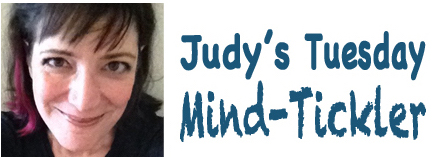This weekend my 86 year old mom fell and ended up in the hospital with broken bones and a lot of pain.*
Watching her manage got me thinking, which is why today for your consideration, the Mind-Tickler brings ow-ies instead of tickles.
Because gosh, don’t we hate physical pain? What a misery.
When the body hurts, there’s no question there’s a Me and a whole bunch of No Thank You.
Seems only logical that we would try to eliminate pain or at least get it to some manageable level where it can be dismissed. (Hey mom, meet Mr. Morphine Button.)
And yet avoiding pain is not a given, and not the only option. Over centuries there have been countless Eastern monks, American Indians and religious visionaries who intentionally brought on torment and set about to hurt in a very big way. As in, on purpose.
What for? Why did they do this to themselves?
Turns out it was to transcend self. To attain enlightenment. Through torture.
Amazingly, vastly different geographical and cultural groups all discovered that when the body feels absolutely awful and the mind is occupied with dealing with that, the self/consciousness/spirit/ or whatever could fly free.
Could it be that pain is a way to escape the body, via the body?
Could it be that for many, physical misery is not just allowed, but actually necessary to enable to transcendence?
Meanwhile a lot of modern-day attention is given to ways to stop this experience. There’s ibuprofen and mindfulness so we don’t hurt, macrobiotic diets so we don’t ache, and opioids, weeds, and alcohol so we don’t notice any of it.
And yet a lot of the Mind-Tickler’s readers are also striving and working earnestly and with dedication in hopes of some glimmer of enlightenment.
So, when it comes to pain, what if we could know that the distress so strenuously being avoided was actually a direct way to transcendence? Would we want it gone then?
If we could consider that it might take hurting we don’t want, in order to get what we do want, what might happen to the experience of that pain?
Of course I’m not saying this is easy, and not proposing that anyone rush out to induce agony like the Indians. And of course anyone in pain can certainly be forgiven for just saying, “Pass the morphine, Doc”. Much like my mom, who’s happily hallucinating puppies and polka-dots.
But if pain does come to call, and if there’s any inclination to deal with it in a different-than-usual way,
Maybe it can be seen as an opportunity rather than a torture.
Because it could just be that like Dorothy, what we’ve been aching for has been here all along, right there in the aches and pains we’ve been so strenuously trying to make vanish.
That shift in viewpoint might change the whole experience.
And that pain may be just what helps us see the light.




